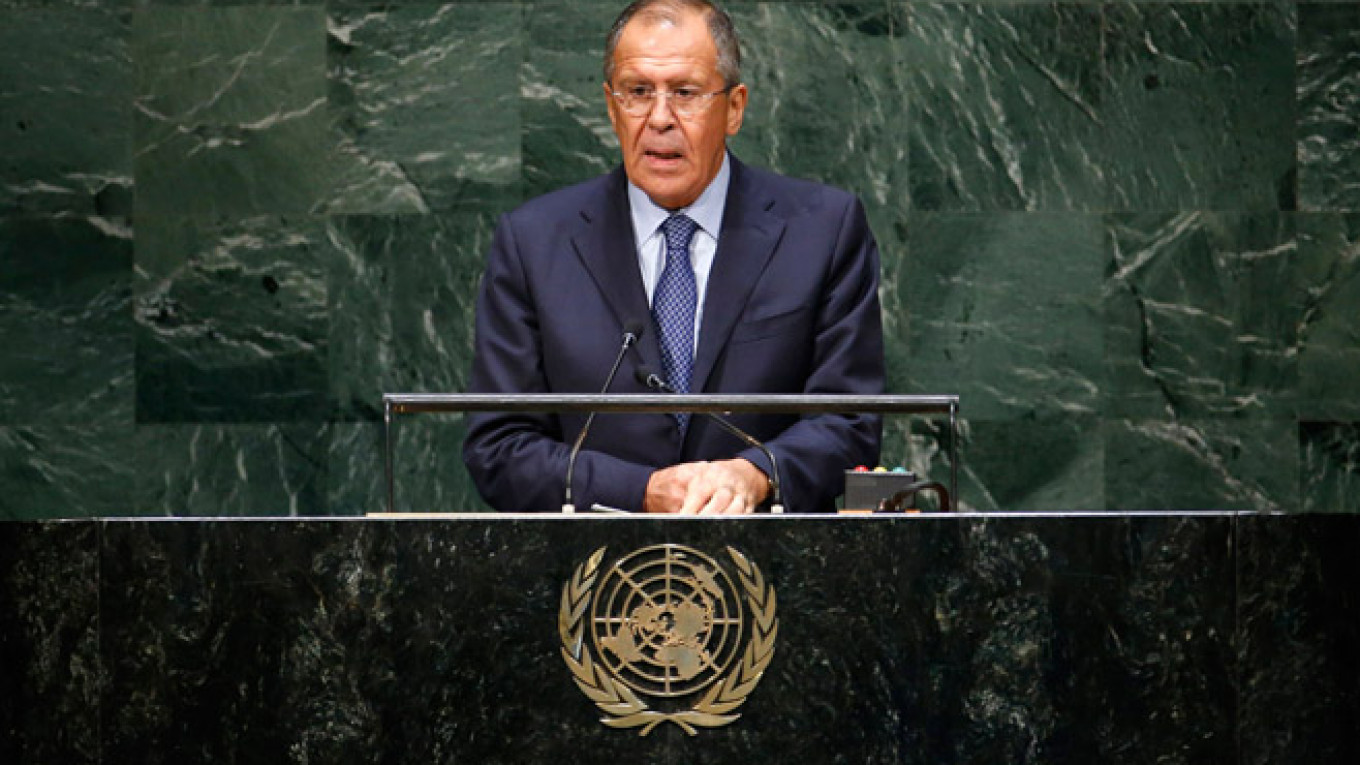The 19th-century German military theorist Carl von Clausewitz gave a classic definition of war as the "continuation of policy by other means." Considering the strategy of the West during various crises in recent years, it would seem that U.S. and European leaders have radically revised that idea and now view war not so much as a continuation of policy as they do an alternative to it.
The most recent confirmation of this observation is Washington's bombing campaign against the Islamic State. Since operations began two weeks ago, Britain has joined the campaign and France intends to do so. Officials claim that the bombing will last for many months and possibly even two or three years.
At the same time, the West has made it clear that it will not cooperate with the regime of Syrian President Bashar Assad and has expressed doubts about the effectiveness of cooperating with Russia in resolving the most acute crisis in the Middle East.
Do serious politicians and experts in the West really believe that bombing will solve the problem of Islamic extremism in the Middle East? Has Washington learned nothing from past experience using force in Iraq, Libya and Afghanistan? Does anyone really believe that war can serve as an effective substitute for diplomacy and foreign policy?
You do not have to be an expert on Islamism to understand that extremism and terrorism in the Middle East have deep socio-economic and political roots — and that Islamism stems in part from multiple instances of Western intervention in the affairs of the region.
It does not take a political clairvoyant to predict that the destructive bombing campaign will inevitably inflict "collateral damage" on civilian targets in Iraq and Syria, and just as inevitably lead to the rise of anti-U.S. and anti-Western sentiment in the Middle East — only further fueling the very Islamic extremism that the West is attempting to eliminate.
And finally, it does not take a Talleyrand or a Metternich to understand that the global community cannot achieve a lasting solution to extremism in the Middle East without the participation of Syria, Iran and Russia. It has been said, in one form or another, that "if a hammer is the only tool you have, everything around you seems to require pounding." If aerial bombing is all that the current U.S. leadership is prepared to use to address the security problems in the world, Washington will always find plenty of targets for its precision bombs.
However, such "foreign policy" will probably lead to the opposite result of the one intended. It might apply pressure to several extremist strongholds in Iraq and Syria, but it is unlikely to solve the larger problem of extremism in general.
Is there an alternative? It seems that the only viable solution is to form the broadest possible coalition of political forces interested in combating extremism together with launching consistent and concerted multilateral efforts to isolate extremists and cut them off from moderate groups of Sunni and Shiite Muslims. Among other things, politics is the art of compromise. In this case, it is important that the fundamental interests of all the responsible players — both within and beyond the Middle East — happen to coincide. That provides a basis for joint political action.
U.S. President Barack Obama came to power criticizing the unilateral use of force by his predecessor, George W. Bush. Six years ago, his team in the White House proclaimed a focus on multilateral diplomacy and inclusive political decision-making. Perhaps this the time to return to those principles.
Multilateral dialogue, the joint search for political compromise and consideration for the interests of all partners could serve as the basis for resolving not only the crisis in the Middle East, but also for restoring the trust between great powers that is necessary for addressing other pressing international problems.
Igor Ivanov, Russia's foreign minister from 1998 to 2004, is the president of the Russian International Affairs Council.
A Message from The Moscow Times:
Dear readers,
We are facing unprecedented challenges. Russia's Prosecutor General's Office has designated The Moscow Times as an "undesirable" organization, criminalizing our work and putting our staff at risk of prosecution. This follows our earlier unjust labeling as a "foreign agent."
These actions are direct attempts to silence independent journalism in Russia. The authorities claim our work "discredits the decisions of the Russian leadership." We see things differently: we strive to provide accurate, unbiased reporting on Russia.
We, the journalists of The Moscow Times, refuse to be silenced. But to continue our work, we need your help.
Your support, no matter how small, makes a world of difference. If you can, please support us monthly starting from just $2. It's quick to set up, and every contribution makes a significant impact.
By supporting The Moscow Times, you're defending open, independent journalism in the face of repression. Thank you for standing with us.
Remind me later.








